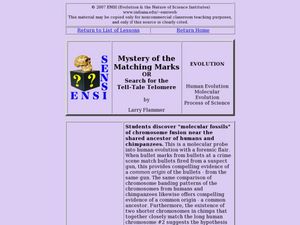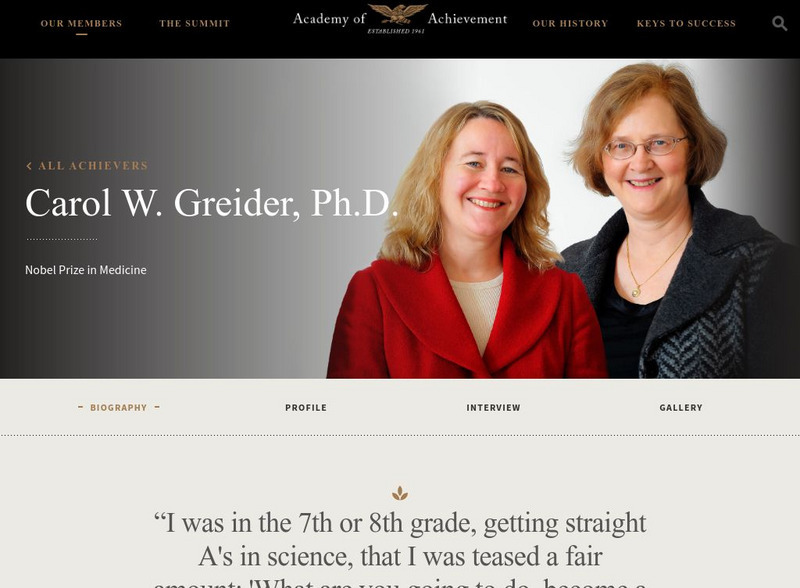Curated OER
AP: Chapter 16: The Molecular Basis of Inheritance
Advanced biology masters take a close look at DNA and the scientists who contributed to our understanding of this complex and powerful molecule. They answer 21 questions about DNA structure, replication, and repair. This can be used as a...
Curated OER
Mystery of the Matching Marks
Students view a Power Point and complete activities related to genetic evidence of human evolution. In this molecular evolution lesson, students view and discuss a provide presentation. They search for the "tell-tale telomere" and...
American Academy of Achievement
Academy of Achievement: Carol Greider, ph.d.
Learn about the influential cell research of Carol Greider, Ph.D. and Dr. Elizabeth Blackburn which has furthered our understanding of cancer and moved us one step closer to a cure. This research earned them a Nobel Prize in Medicine....
National Health Museum
Access Excellence: Human Chromosomes
This map from Access Excellence shows human chromosome pairs. The site includes a short description of chromosome structure, staining of chromosomes and karyotypes.
University of Utah
University of Utah: Learning Center: learn.genetics: Telomeres Aging and Cancer
Scientists make a connection between the shortening of the telomeres on the ends of chromosomes and the risk of developing cancer. A short interactive video illustrates how this shortening can lead to cancer.
BiologyWise
Biology Wise: Types of Chromosomes
Discusses the functions of chromosomes, features of their structure, and different types of chromosomes.
PBS
Pbs: Never Say Die: The Clock of Life
This site from the PBS production, Scientific American Frontier "Never Say Die", includes a section entitled "The Clock of Life". It provides a discussion of cell death through shortening of the telomere. A good class activity included.
Howard Hughes Medical Institute
Hhmi: Bio Interactive: Structure and Function of Telomeres
Discover the cutting edge research going on with telomeres. Find out what they are, how they replicate and their role in the aging process.







